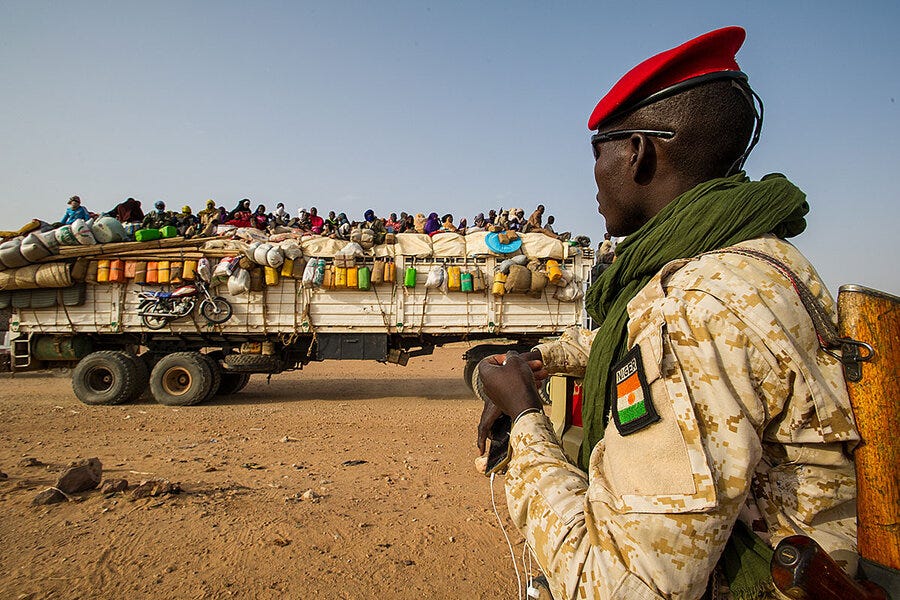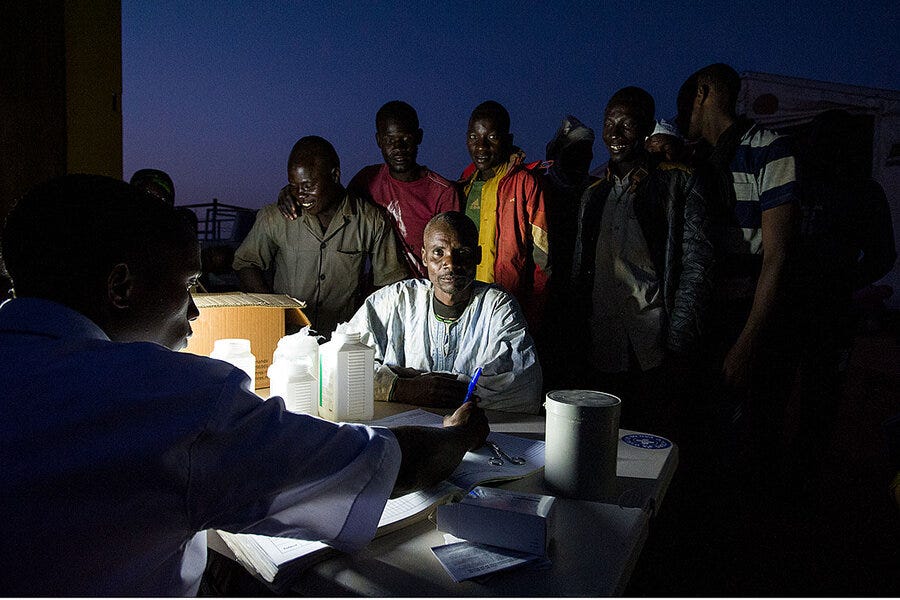Niger's Repeal of Anti-Migration Law: Unraveling a Complex Web of Diplomacy and Sovereignty
The termination of a controversial migration law marks the end of an eight-year security pact with the EU and signals a shift in Niger's foreign relations.

Introduction
In a bold move, Niger's military government recently annulled Law 36-2015, a contentious legislation that criminalized the transportation of migrants north from Agadez to Europe via Libya and Algeria. The repeal not only terminates an eight-year security partnership with the European Union (EU) but also introduces a new layer of complexity to Niger's diplomatic relations since the military assumed power in July. The Global Trotter delves into the origins of the law, its impact on the region, and the geopolitical implications of its repeal.

Section I: Genesis of Law 36-2015
Subsection 1.1: Europe's Refugee Crisis of 2015
Amid Europe's refugee crisis in 2015, Niger, under President Mohammadou Issoufou, enacted Law 36-2015 to curb the flow of migrants through Agadez, a critical transit point. European influence, particularly from the EU, played a significant role in the law's passage, sparking criticism for being an imposition on African nations by external powers.
Subsection 1.2: EU's Financial Leverage
To encourage the implementation of the law, the EU established a five-billion-euro Trust Fund for Africa, providing over one billion euros to Niger between 2014 and 2020. Critics argue that the financial incentives exerted undue pressure on one of the world's poorest governments.

Section II: Impact and Criticisms
Subsection 2.1: Economic Fallout in Agadez
Once the law took effect in 2016, its impact reverberated across the region, particularly in Agadez. The centuries-old migration business, central to the region's economy, collapsed, leading to economic devastation. Shops, restaurants, and hospitality businesses dependent on migration faced a downturn, resulting in an unforeseen economic catastrophe.
Subsection 2.2: Controversies and Criticisms
The law faced ongoing criticisms from experts, civil society organizations, and foreign affairs analysts who perceived it as a manifestation of Western interference in Africa. The push for its declaration as illegal gained momentum, emphasizing concerns about the law's detrimental effects on the region's economy and the freedom of sub-Saharan citizens.

Section III: The Repeal and Diplomatic Implications
Subsection 3.1: A Symbolic Act of Independence
Niger's recent decision to repeal Law 36-2015 is seen as a symbolic assertion of independence and a shift away from Western influences. The termination of the legislation effectively severs an eight-year security partnership with the EU, raising questions about the future trajectory of Niger's foreign relations.
Subsection 3.2: Diplomatic Standoff and Multilateral Agreements
The repeal comes amid a diplomatic standoff between Niger's military government and Western partners since the July coup. Niger's commitment to a multilateral security pact with Burkina Faso and Mali, forming the Alliance of Sahel States (AES), suggests a broader plan for the military government to assert itself and gain legitimacy.

Section IV: Domestic and International Reactions
Subsection 4.1: Domestic Consolidation of Power
The repeal is expected to assist the military government in consolidating power domestically by distancing itself from France and broader European interests. By portraying the move as a restoration of sovereignty and a rejection of colonial-era fetters, the government aims to align with the sentiments of the populace.
Subsection 4.2: Disappointment in Brussels
While Brussels responded with tempered diplomacy to the July coup, the repeal of Law 36-2015 is likely to disappoint the EU, which had been cautious in its approach to avoid jeopardizing its migration agreement with Niger. The government's unwillingness to align with broader European interests challenges the EU's influence.
Conclusion
Niger's repeal of the anti-migration law transcends a legislative change; it signifies a recalibration of diplomatic ties and a quest for greater autonomy. As the nation navigates a delicate balance between asserting sovereignty and managing international relationships, The Global Trotter remains committed to providing in-depth coverage and analysis. Subscribe for ongoing insights into Niger's evolving geopolitical landscape and the intricacies of its newfound path toward independence.


